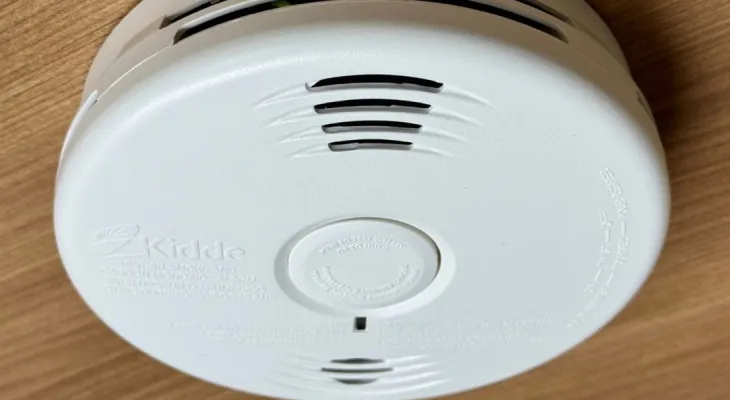Search here
Newspaper
Search here

Arab Canada News
News

Published: November 12, 2024
As winter approaches and heating systems are turned on, the city of Ottawa has issued warnings to residents about the importance of testing carbon monoxide (CO) alarms and following safety tips to prevent carbon monoxide-related emergencies. The city emphasized that carbon monoxide is a colorless and odorless gas, making it nearly impossible to detect without an alarm, which increases the risk of poisoning in homes.
What is carbon monoxide?
The city explained that carbon monoxide is typically formed in homes as a result of incomplete combustion of fuel. When fuels such as gas, coal, or wood are burned, if the emitted gases are not properly ventilated outside the building, carbon monoxide may accumulate indoors. This toxic gas can lead to serious poisoning and sometimes death if accumulation continues.
Health risks:
According to statistics from the Government of Canada, carbon monoxide poisoning is a major public health concern in the country. It is responsible for about 300 deaths and 200 hospitalizations annually due to poisoning.
Safety tips:
1. Install carbon monoxide alarms: The city advises installing carbon monoxide alarms in detached and independent homes, and they should be placed in hallways or areas directly outside of bedrooms. In apartments, these devices should be installed in the hallway or any other area directly outside of bedrooms if the unit has a fuel-burning appliance or shares a wall or ceiling with a unit containing a fuel-burning appliance or garage.
2. Test alarms: Residents should test carbon monoxide alarms monthly by pressing the “test” button to ensure they are functioning correctly. Batteries should also be replaced annually to ensure ongoing protection. The alarm itself should be replaced every five to seven years or according to the manufacturer's instructions.
3. Clean and maintain furnaces and chimneys: The city recommends annual inspection and cleaning of furnaces, heaters, gas dryers, gas stoves, and any other fuel-burning appliances. It should be ensured that these devices are in good condition to reduce the risk of carbon monoxide poisoning.
4. Ensure proper ventilation of exhaust pipes: Residents should shovel snow off exhaust pipes, dryer vents, and any outlets for fuel-burning appliances to ensure proper airflow.
5. Dispose of vehicles safely: When using vehicles, cars should be taken out of the garage immediately after starting to avoid carbon monoxide buildup inside the home or building.
6. Use generators and gas appliances in open areas: The city warns against using generators or other gas equipment inside buildings or enclosed spaces; they should only be used in well-ventilated open areas away from windows, doors, and ventilation openings.
7. Warning against using gas appliances indoors: Residents should avoid using gas appliances such as stoves or ovens or clothes dryers to heat their homes. They should also avoid using fuel-burning grills or portable camping equipment inside buildings, unless specifically designed for indoor use.
Collaboration initiative with fire services:
As part of the efforts to reduce the number of deaths resulting from carbon monoxide poisoning, the Ottawa Fire Services collaborated with Enbridge Gas last fall to provide carbon monoxide alarms to at-risk households. On November 1st, they launched the “Zero Safe Community Project,” an awareness campaign aimed at providing smoke and carbon monoxide alarms to high-risk households. In this campaign, 630 alarm kits were distributed to Ottawa residents who may face high risks due to carbon monoxide, in an attempt to reduce carbon monoxide and fire-related deaths to zero.
The importance of adhering to these measures:
The city of Ottawa emphasizes the importance of adhering to these precautionary measures to ensure the safety of households and prevent health emergencies related to carbon monoxide.
Comments